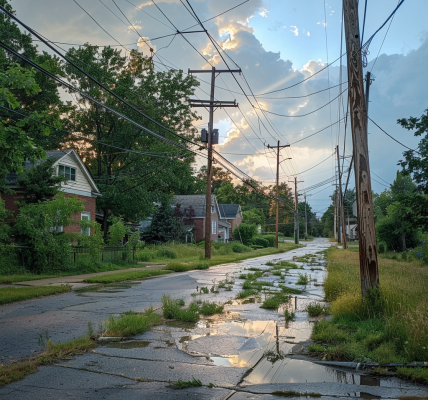As the 2024 presidential election draws closer, a significant number of Americans are engaging in what is being termed “doom spending.” A recent report from Intuit Credit Karma reveals that approximately 27% of consumers are spending money despite having concerns about the current economic climate and international affairs. This trend appears to be particularly pronounced among younger generations, with 37% of Gen Z individuals and 39% of millennials admitting to this behavior.
The survey, which gathered insights from 1,001 U.S. adults in late October, indicates that a staggering 60% of respondents are more worried about the state of the world and the economy than they were a year ago. The report highlights that the primary concerns driving this behavior include the rising cost of living (55%), inflation (43%), and the upcoming presidential election (28%).
For many individuals, the feeling of uncertainty surrounding economic conditions has led to a mindset where saving money seems less rational. In fact, 36% of those surveyed expressed that they struggle to justify saving due to these feelings of uncertainty. This sentiment is even more pronounced among younger demographics, with 47% of Gen Z and 43% of millennials feeling similarly.
Experts suggest that the urge to engage in doom spending may stem from a desire for control during a time when many feel overwhelmed by external circumstances. Courtney Alev, a consumer financial advocate at Credit Karma, notes that shoppers are seeking a sense of agency in a world that often feels chaotic. “Doom spending” is particularly prevalent among younger individuals who are frequently connected to the internet and social media. According to Credit Karma’s findings, 70% of Gen Z and 52% of millennials identify as being “chronically online.”
Alev points out that being immersed in online discussions about global events can exacerbate stress levels, prompting individuals to seek out coping mechanisms such as shopping. This behavior is reflected in another study by Bankrate.com, which found that shoppers who make impulse purchases influenced by social media spend an average of $754 annually.
Interestingly, the phenomenon of doom spending can be traced back to the psychological impacts of the COVID-19 pandemic. Ted Rossman, a senior industry analyst at Bankrate.com, suggests that the pandemic may have instilled a sense of urgency in consumers, leading them to prioritize immediate gratification over long-term financial planning. This shift in mindset can be attributed to the heightened anxiety and uncertainty experienced during the pandemic, which has influenced spending habits even as the world begins to stabilize.
As the election approaches, it remains to be seen how these spending behaviors will evolve. With economic concerns looming large, it is essential for consumers to remain mindful of their financial decisions. The interplay between anxiety and spending habits underscores the importance of financial literacy and the need for individuals to develop strategies to manage their finances effectively in uncertain times.
In light of the upcoming election and ongoing economic challenges, consumers are encouraged to take a proactive approach to their financial well-being. This includes setting budgets, prioritizing savings, and considering the long-term implications of spending habits. By fostering a greater understanding of personal finance, individuals can navigate the complexities of the current economic landscape while also addressing their emotional responses to external pressures.
As the nation gears up for the presidential election, it is clear that the intersection of personal finance and political events will continue to shape consumer behavior. The trend of doom spending serves as a reminder of the broader socio-economic factors influencing individual choices and the importance of making informed financial decisions.





